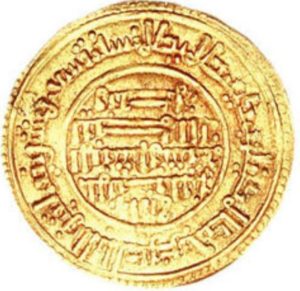Father of Libyan Jewry
 Shimon ibn Lavi (1486-1585) was born in Spain and exiled with his family during the Spanish Expulsion of 1492. The family settled in Fez, Morocco, where Lavi studied to become a rabbi. He then sought to make aliyah to the Holy Land, but was kidnapped along the way near Tripoli by Arab brigands. After being ransomed, he found the Tripoli Jewish community in need of a rabbi so he stayed there. It was Lavi who opened the city’s first yeshivas, established a beit din, and went on to make the city one of the largest Jewish communities in North Africa. He is often credited with being the “father of Tripoli Jews”. Rabbi Lavi was the community’s official representative to the government, and served as the Ottoman governor’s personal physician. He was also a major Kabbalist, alchemist, and mystic. In fact, he wrote the popular song “Bar Yochai”, in honour of Rabbi Shimon bar Yochai whose teachings would become the Zohar (the primary “textbook” of Kabbalah) and who is celebrated on Lag b’Omer. Lavi wrote a commentary on the Zohar called Ketem Paz, as well as a dictionary translating some of the Zohar’s most cryptic words. He was widely known as a miracle worker, and was revered by Jews and Muslims alike (the latter refer to him as “Ibn Limam”), with his tomb serving as a major pilgrimage site in Libya.
Shimon ibn Lavi (1486-1585) was born in Spain and exiled with his family during the Spanish Expulsion of 1492. The family settled in Fez, Morocco, where Lavi studied to become a rabbi. He then sought to make aliyah to the Holy Land, but was kidnapped along the way near Tripoli by Arab brigands. After being ransomed, he found the Tripoli Jewish community in need of a rabbi so he stayed there. It was Lavi who opened the city’s first yeshivas, established a beit din, and went on to make the city one of the largest Jewish communities in North Africa. He is often credited with being the “father of Tripoli Jews”. Rabbi Lavi was the community’s official representative to the government, and served as the Ottoman governor’s personal physician. He was also a major Kabbalist, alchemist, and mystic. In fact, he wrote the popular song “Bar Yochai”, in honour of Rabbi Shimon bar Yochai whose teachings would become the Zohar (the primary “textbook” of Kabbalah) and who is celebrated on Lag b’Omer. Lavi wrote a commentary on the Zohar called Ketem Paz, as well as a dictionary translating some of the Zohar’s most cryptic words. He was widely known as a miracle worker, and was revered by Jews and Muslims alike (the latter refer to him as “Ibn Limam”), with his tomb serving as a major pilgrimage site in Libya.
Lag b’Omer Begins Tonight!
Video: Secret Origins of Lag b’Omer
Words of the Week
One of the saddest lessons of history is this: If we’ve been bamboozled long enough, we tend to reject any evidence of the bamboozle. We’re no longer interested in finding out the truth. The bamboozle has captured us. It’s simply too painful to acknowledge, even to ourselves, that we’ve been taken. Once you give a charlatan power over you, you almost never get it back.
– Carl Sagan


